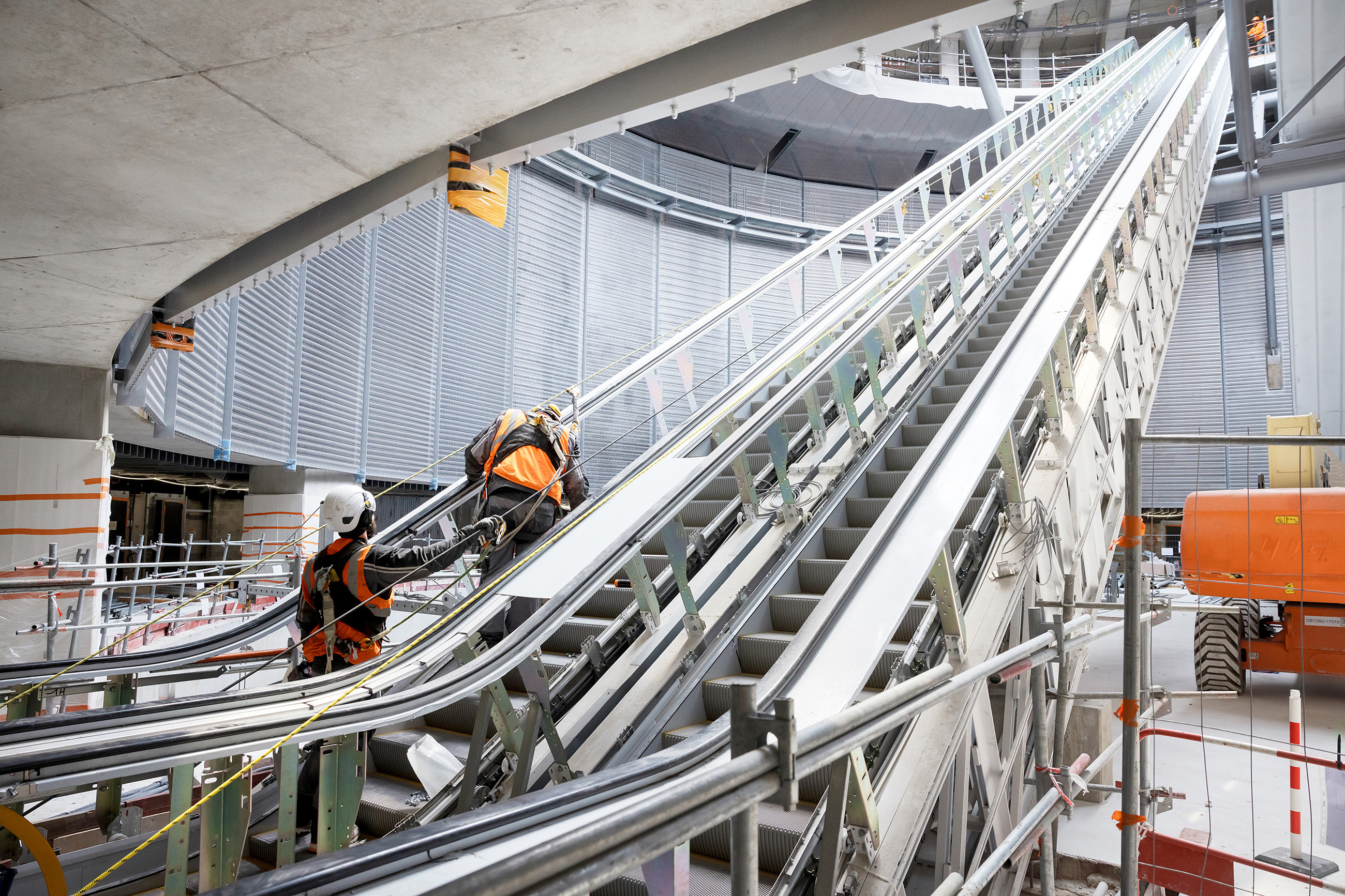Paris, France
Olympic performance
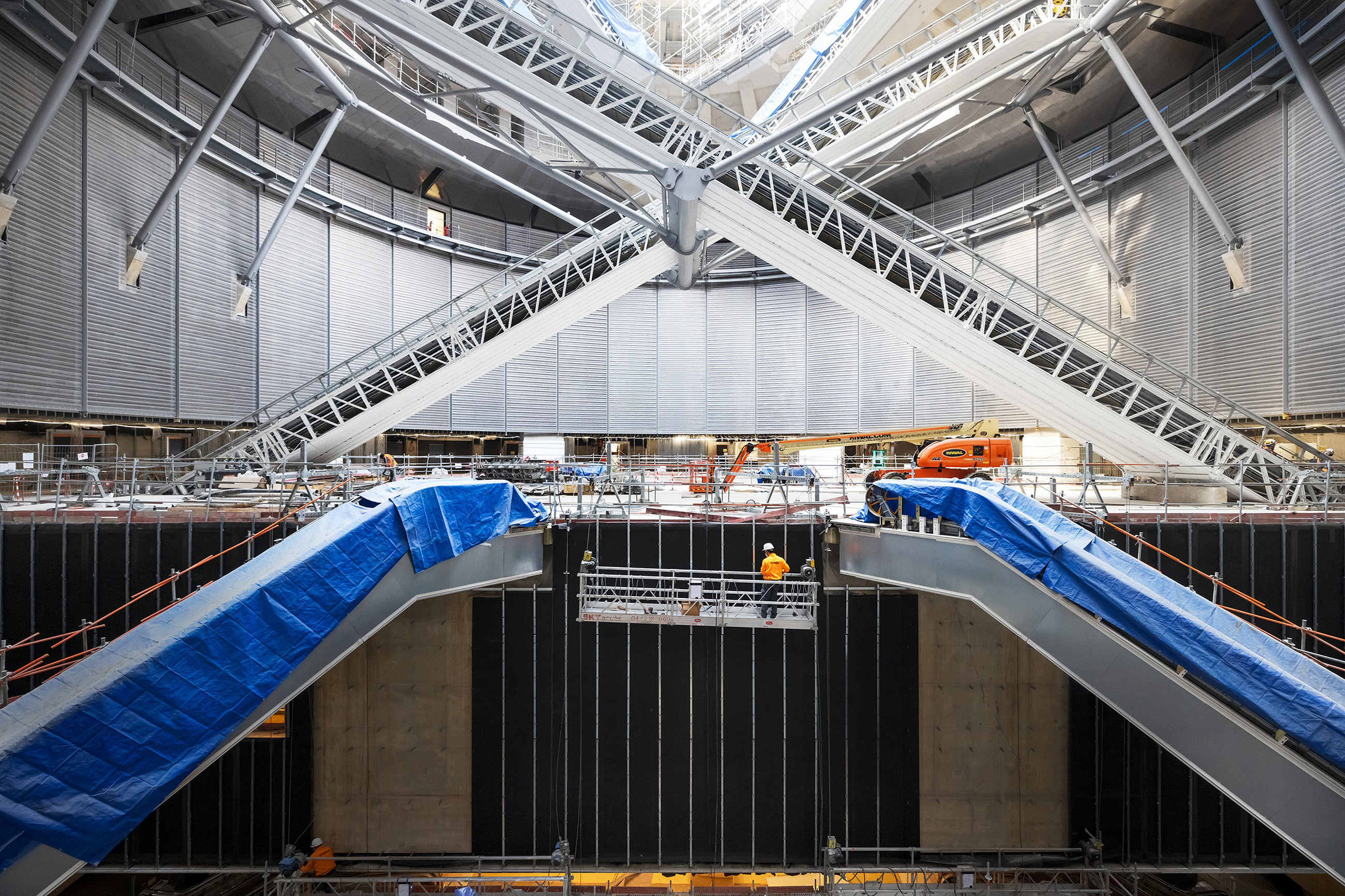
With the first new line to open in time for the 2024 Olympics, Schindler elevators and escalators go for gold on the Grand Paris Express. In total, the company will supply 430 units for the biggest public transport project in Europe.
“Welcome to Schindler Plaza,” announces Schindler Project Manager Edouard Rayer with a smile, as he stands on a poured concrete platform in the 30-meter-deep metro shaft. From this platform, eight Schindler escalators lead up and another eight down – and it’s the installation technicians of these escalators who have given the platform its nickname. They’re currently applying the final touches to the 32 escalators that Schindler is supplying to the new Villejuif Gustave Roussy metro station, in preparation for its key role as the intersection of Grand Paris Express lines 14 and 15.
Paris currently has a problem – all routes lead through the center of the city, which is only 105 km². When any of the twelve million residents of the 12 000 km² Île-de-France travel from east to west or north to south – which six million of them do every day – they go by car, because there’s been no alternative – until now. The French government is launching Grand Paris Express, a project designed to double the existing metro network to 400 kilometers, linking outer districts to the city center through circular metro lines, and creating airport connections. By 2031, traffic chaos will be a thing of the past, with much shorter travel and commuting times for Parisians.
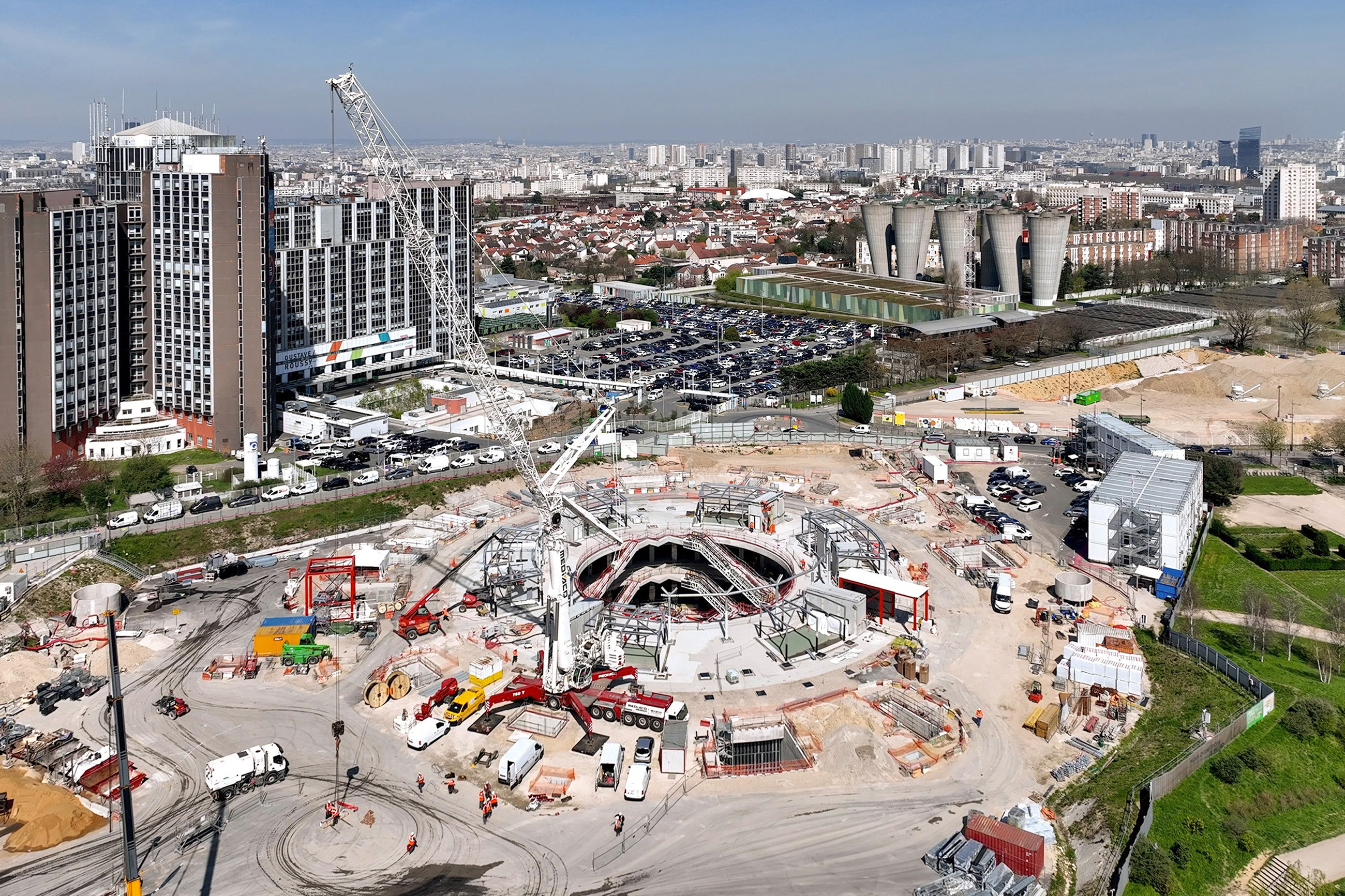
The Société du Grand Paris, which was established in 2010, is building seven stations, extending lines 11 and 14, and building four new, fully automatic metro lines – 15, 16, 17, and 18. Ninety percent of the new metro runs underground at depths of between 30 and 50 meters. The Grand Paris Express is Europe’s largest subway project. Line 14 will be ready for operation by the 2024 Summer Olympics, and all other elements of the centennial project, which bears a price tag of 36 billion euros, are expected to be completed by 2031.
For Schindler France, the Grand Paris Express commission is a huge feat and a great opportunity. The Société du Grand Paris ordered 430 escalators and elevators for its 68 metro stations: 240 Schindler 9300 escalators and 190 Schindler 5500 elevators, all equipped with customized components, such as the highly stress-resistant anti-vandalism elevator cabs. Following the Opening Ceremony, these systems will be responsible for transporting three million people each day to and from the trains.
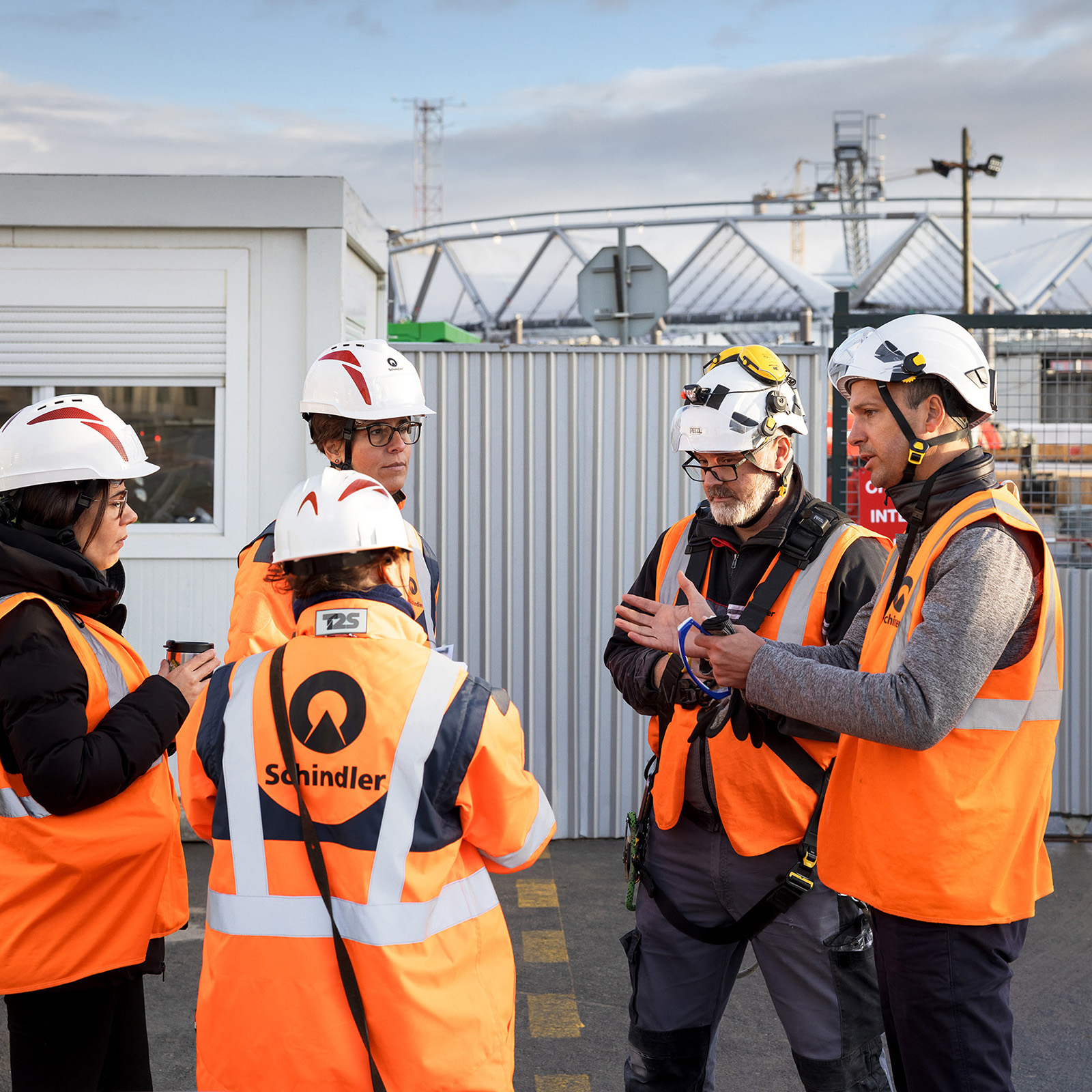
Driving to meet with the client, Schindler Construction Director Philippe Pellegrin explains: “I’m very proud, but I do feel the weight of such great responsibility. This project represents a fundamental change in Greater Paris transportation. Our elevators and escalators are part of a more environmentally friendly transit solution for millions of passengers –we’re facilitating the switch from private cars to the metro.”
Meanwhile, Country Director Philippe Boué speaks to us from the boardroom at the Schindler France headquarters in the Parisian suburb of Vélizy-Villacoublay: “The prolonged construction phase is a challenge in its own right, and we created an entirely separate division to execute it. For starters, we had to consider how to fit all the escalators into the hole!”
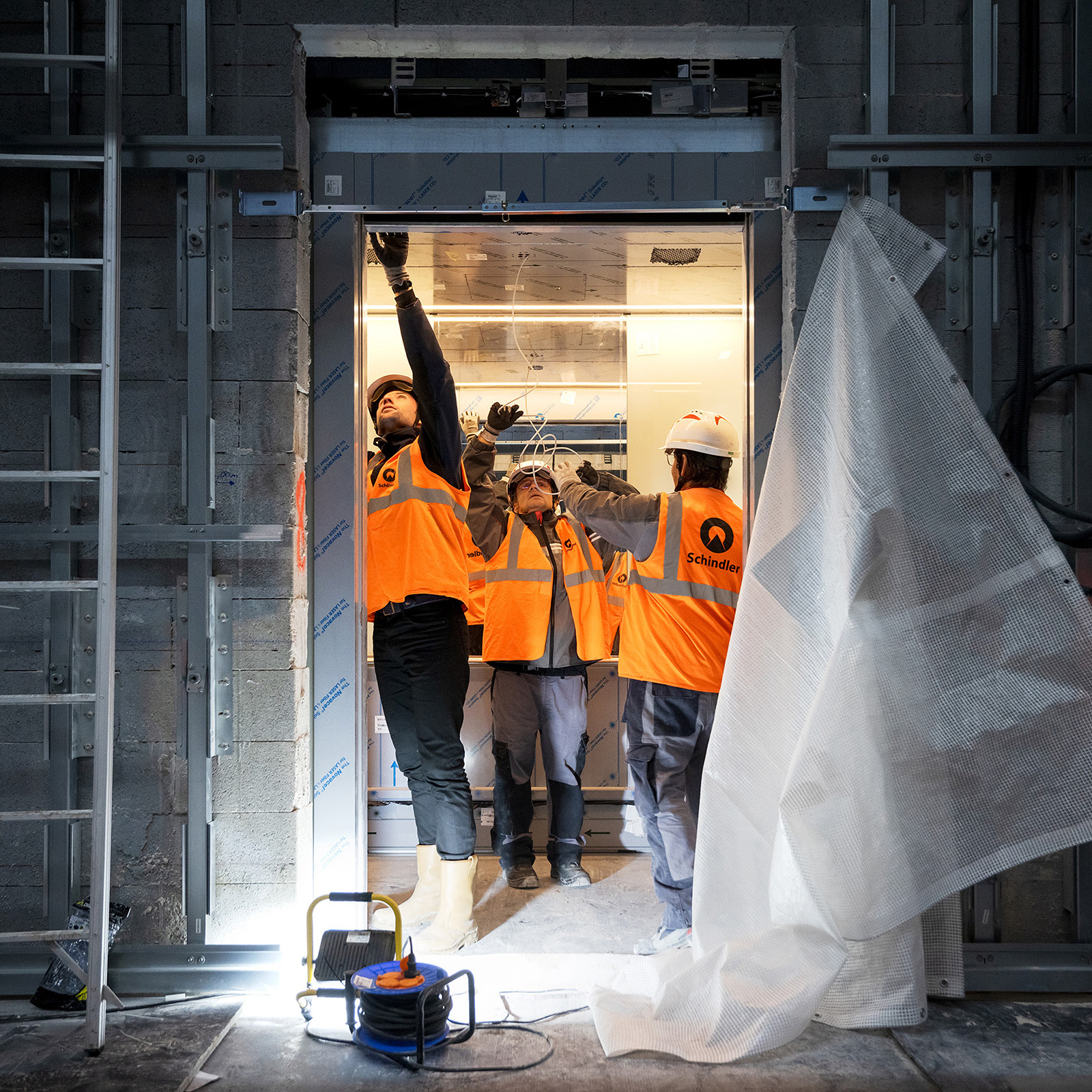
The delivery of the first 20 escalators at the Villejuif Gustave Roussy metro station in May 2022 was a logistical challenge and an open-air spectacle. Each escalator is 40 meters long and weighs 30 tons. The team used a powerful crane to lift each escalator, one by one, and place it onto a belt, to be carried to a 50-meter shaft and into a 30-meter-wide hole. Schindler technicians then installed them in only two weeks.
In April 2023, another 12 escalators were installed. Then, the time for installation was up, and ground access blocked by the arrival of a Plexiglas roof designed to span the entrance. Architect Dominique Perrault calls his design of the Villejuif Gustave Roussy metro station the “Sundial.” The transparent roof allows sunlight to penetrate deep into the shaft – Perrault’s way of creating the illusion of a bottomless depth.
The metro expansion means something to a lot of people. Edouard Rayer shares an example of how he personally will benefit from the Grand Paris Express: “My family and I live next to the Issy- les-Moulineaux station, and one of my best friends is in Noisy-le-Grand. At the moment, it takes me an hour and a half by car, but once the Grand Paris Express is complete, I’ll be able to meet up with him in just 15 minutes. My wife will continue to commute to work by metro.” In total safety and comfort, of course. Escalator and elevator cybersecurity is a priority throughout the project. The Société du Grand Paris insisted on a strict firewall that can prevent hackers from gaining control of the systems – a disastrous occurrence in a major metro station. Schindler was able to ensure the requirements were met.
Women often take the lead in such matters – take Construction Manager Alessandra Pirri, for example, who swears by diverse teams. “Our well-trained and motivated technicians and fitters do whatever is necessary to bring our projects to completion – on time,” she explains. “I act as the interface between them and the client. This is our recipe for success!”
Supervisor Virginie Da Silva is the construction manager working on the Villejuif Gustave Roussy project of the Grand Paris Express. Formerly a payroll manager, she switched roles to become a construction manager’s assistant, then earned her Schindler Academy certification and is now one of the most successful supervisors at the front.
Schindler teams are enjoying success across the project. And when asked how Schindler won this major commission in the first place, Philippe Boué explains: “Schindler France has developed wide-ranging experience over many years, with public transit projects such as the 300 elevators for the state-owned railway company SNCF, and long-term maintenance contracts with SNCF and RATP, the Parisian public transit system. We earn accolades for our customer orientation, technical expertise, and flexible project management, and these advantages are helping us to meet the tight deadlines leading up to the Olympic Games.”
